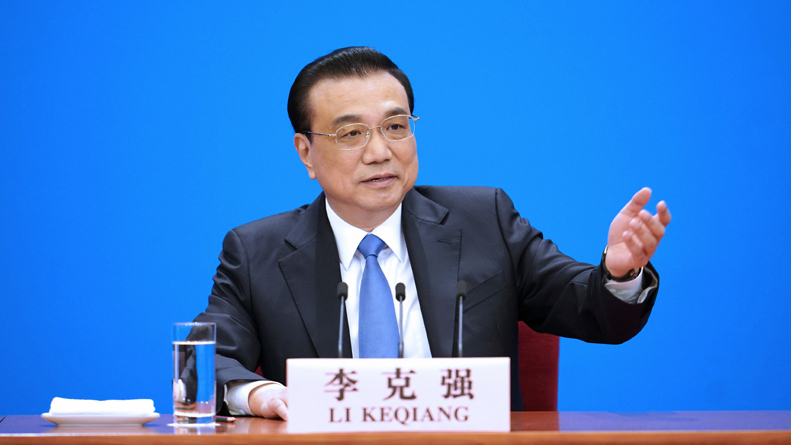
Economy
11:30, 04-Apr-2019
China announces fee cuts of 300 billion yuan
Updated
13:09, 04-Apr-2019
CGTN

China announced measures to reduce government-levied charges and operating service fees by more than 300 billion yuan (44.7 billion U.S. dollars) this year. The announcement was made at the State Council executive meeting chaired by Premier Li Keqiang on Wednesday.
The measures, which will take effect from July 1, are aimed at further lessening the burden on businesses and individuals.
Charges on real estate registration will be cut or canceled and the coverage of patent applications and annual fee reductions will be expanded. Personal postal articles tax rates will also be lowered to expand imports and boost consumption.
"Tax and fee cuts are a key measure to tackle the downward economic pressure this year," said Premier Li. "They are a major policy initiative. Cutting fees could serve multiple purposes. All government departments must do their best to effectively ease the burden on businesses and deliver real benefits to consumers. This will also boost our industrial development."
He pledged in the Government Work Report this year to take reform measures to lower business-related charges. Electricity costs in manufacturing will be reduced, and the average utility rates for general industrial and commercial businesses will be cut by another 10 percent. Average broadband service rates for small and medium-sized enterprises will be cut by another 15 percent, and the average rates for mobile internet services by more than 20 percent.
Charges on exit and entry travel documents such as private passports, registration of certain trademarks, and radio frequency use in electricity and the Internet of Vehicles will be further reduced. For example, ownership registration fees for real estate such as garage and parking spots will be reduced from 550 yuan (82 U.S. dollars) to 80 yuan (12 U.S. dollars) each. And the registration fee for continued use of trademarks will go down from 1,000 yuan (149 U.S. dollars) to 500 yuan (74 U.S. dollars).
The meeting also worked out measures for cutting personal postal articles tax rates. Starting from April 9, the tax rate on food and medicine will be cut from 15 percent to 13 percent, and the tax rate on textiles and electrical appliances will be trimmed from 25 percent to 20 percent.
Chinese airline shares surge
The measures also include that payment by airline companies to the civil aviation development fund is to be halved. The change to the civil aviation fund could lead to savings of 3.74 billion yuan according to Bloomberg.
Chinese airline shares surged Thursday following the announcement. Beijing-based Air China Ltd. rose as much as 12 percent in Hong Kong, while Shanghai-based China Eastern Airlines Corp. jumped 20 percent and Guangzhou-based China Southern Airlines Co. rose 15 percent.
The civil aviation development fund is charged to passengers and carriers for the construction of airports and other aviation infrastructure.
(Cover: Premier Li met the press at the annual session of the National People's Congress, March 15, 2019. /Photo from the Chinese State Council website)

SITEMAP
Copyright © 2018 CGTN. Beijing ICP prepared NO.16065310-3
Copyright © 2018 CGTN. Beijing ICP prepared NO.16065310-3